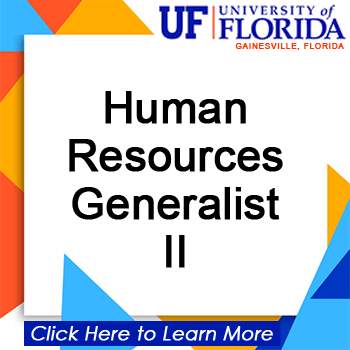ISR Post-Doctoral Associate
Job Description
Full job description
Required:
- Doctoral Degree (PhD, ScD, DrPH or equivalent) in public health or related discipline
- Demonstrates kindness, compassion, integrity, and commitment to anti-racism and liberation-based approaches.
- Recognizes the shared dignity and humanity of all individuals and communities
- Prior experience with multisite research with a diverse set of academic and community partners
- Experience and comfort working alongside community organizations, organizers, and scholars
- Courage and commitment to personal growth and self-discovery in anti-racist practices and methodologies.
- Record of scholarly productivity including publications in peer-reviewed journals and presentations at scientific meetings
- Strong interpersonal skills and the ability to build and maintain relationships with diverse stakeholders.
- Excellent verbal, written and interpersonal skills essential
ISR Post-Doctoral Associate
University of Minnesota/Division of Epidemiology and Community Health
The School of Public Health (SPH) is committed to antiracism and anti-oppression and welcomes you to join us in our pursuit of building equity and driving justice. We particularly encourage applications from those who belong to groups that have been historically underrepresented in our School, including those who are American Indian, Black, Indigenous, and people of color, those with disabilities, veterans, and those from LGBTQIA+ communities.
Overview:
The Structural Inequities and Transdisciplinary Health (SITH) Lab uses a public health critical race praxis framework to investigate racial/ethnic, socioeconomic, and geographic inequities in cancer morbidity and mortality, tobacco use, HIV/AIDS, and aging. The SITH Lab is recruiting a Postdoctoral Fellow for two years, with a target starting date of September 1, 2024.
The post-doctoral associate will primarily work on the Illuminating and Addressing Healthcare’s Role in Perpetuating Structural Racism (ISR) project, a three-year, multi-site initiative sponsored by the Robert Wood Johnson Foundation. The ISR project intends to synthesize and build on existing research to clearly illuminate the historical roots of structural racism in the healthcare system and the modern-day structures, policies, and institutional practices that have resulted in and perpetuated structural racism and a culture of white supremacy. To accomplish this, our team will:
- Cultivate a diverse network inclusive of scholars, community members, organizers and activists, and healthcare practitioners engaged in antiracism efforts;
- Develop a framework to understand structural racism and racial capitalism in the healthcare industry and identify potential entry points for antiracism action utilizing systems science and organizing tools;
- Translate and disseminate project learnings to key audiences through a collaborative, multimedia narrative strategy; and
- Co-develop organizing tools that build power and agency towards accountability and policy transformation.
These activities will produce a roadmap for future research, funding, and, most importantly, bold action towards dismantling structural racism in the healthcare industry.
The post-doctoral associate will work directly with the SITH Lab Director, Dr. Zinzi Bailey, Associate Professor in the Division of Epidemiology and Community Health and will also have the opportunity to work with other faculty affiliated with the project, whose research expertise include racial residential segregation, urban agriculture and land-based resistance; policing and community health, racial trauma and healing, systems science, environmental racism and justice, spatial statistics, and Black maternal health inequities.
The post-doctoral associate will also have the opportunity to develop their own independent research portfolio. Additional expectations include development of manuscripts for peer-reviewed publications and participation with community and advocacy activities related to the SITH Lab projects.
We welcome applications from scholars with doctoral degrees in public health, healthcare, and health-related disciplines, including healthcare policy and management, social epidemiology, biostatistics, community health, and environmental health, as well as related fields, such as history, geography, sociology, anthropology, statistics, or demography, among others and whose research interests focus explicitly on links between racism and population health. We also welcome scholars who use quantitative, qualitative, mixed methods or systems science methodologies. While we encourage applications from all interested scholars, preference will be given to scholars who are from groups that have been historically excluded within the academy.
Job Duties
- Participation in ISR Project and independent research
- Development of manuscripts for peer-reviewed publication
- Development of grant applications for external funding
Research activities, 70%
Professional development, 20%
Grant writing, 10%
Environment:
- Hybrid/United States
- Full Time, Monday - Friday
- 2 year appointment
Compensation:
- $66,000/year
Epidemiology and Community Health:
The Division of Epidemiology & Community Health focuses on disease and health in various populations. Our faculty and students examine the distribution, cause and prevention of diseases, and how human behavior affects overall health.
The division offers MPH, MS and PhD degrees, as well as dual and joint degrees.
Research:
The work of epidemiologists spreads across sectors and areas of study, so our division and faculty are often partnering with other research entities and community organizations on public health research and interventions. We are committed to protecting research participants, upholding ethical standards, and improving our practice at every step of our work. Research priorities or pods which encourage collaboration and innovation among our faculty and build upon the division’s robust research history include the fields of Cancer, Cardiovascular Disease, Global health Infectious Disease, Maternal and Child Health, Healthy Weight, Social Epidemiology, Substance Abuse and Grocery Assistance Program Study for Families.
The Division’s Mission:
To improve the health of the public through state-of-the art teaching, translation of research into practice, and training of the next generation of public health professionals.
Applications must be submitted online. To be considered for this position, please click the Apply button and follow the instructions. You will be given the opportunity to complete an online application for the position and attach a cover letter and resume. In addition to the application, please submit the following:
- Official doctoral transcript
- CV
- Statement of research interests
- Contact information for three references Additional documents may be attached after application by accessing your "My Job Applications" page and uploading documents in the "My Cover Letters and Attachments" section.
To request an accommodation during the application process, please e-mail employ@umn.edu or call (612) 624-8647.
The University recognizes and values the importance of diversity and inclusion in enriching the employment experience of its employees and in supporting the academic mission. The University is committed to attracting and retaining employees with varying identities and backgrounds.
The University of Minnesota provides equal access to and opportunity in its programs, facilities, and employment without regard to race, color, creed, religion, national origin, gender, age, marital status, disability, public assistance status, veteran status, sexual orientation, gender identity, or gender expression. To learn more about diversity at the U: http://diversity.umn.edu
Any offer of employment is contingent upon the successful completion of a background check. Our presumption is that prospective employees are eligible to work here. Criminal convictions do not automatically disqualify finalists from employment.
The University of Minnesota, Twin Cities (UMTC)
The University of Minnesota, Twin Cities (UMTC), is among the largest public research universities in the country, offering undergraduate, graduate, and professional students a multitude of opportunities for study and research. Located at the heart of one of the nation's most vibrant, diverse metropolitan communities, students on the campuses in Minneapolis and St. Paul benefit from extensive partnerships with world-renowned health centers, international corporations, government agencies, and arts, nonprofit, and public service organizations.
At the University of Minnesota, we are proud to be recognized by the Star Tribune as a Top Workplace for 2021, as well as by Forbes as Best Employers for Women and one of America’s Best Employers (2015, 2018, 2019, 2023), Best Employer for Diversity (2019, 2020), Best Employer for New Grads (2018, 2019), and Best Employer by State (2019, 2022).
*Please mention you saw this ad on AcademeCareers.*
Be Seen By Recruiters at the Best Institutions
Create a FREE Profile to be Seen!






